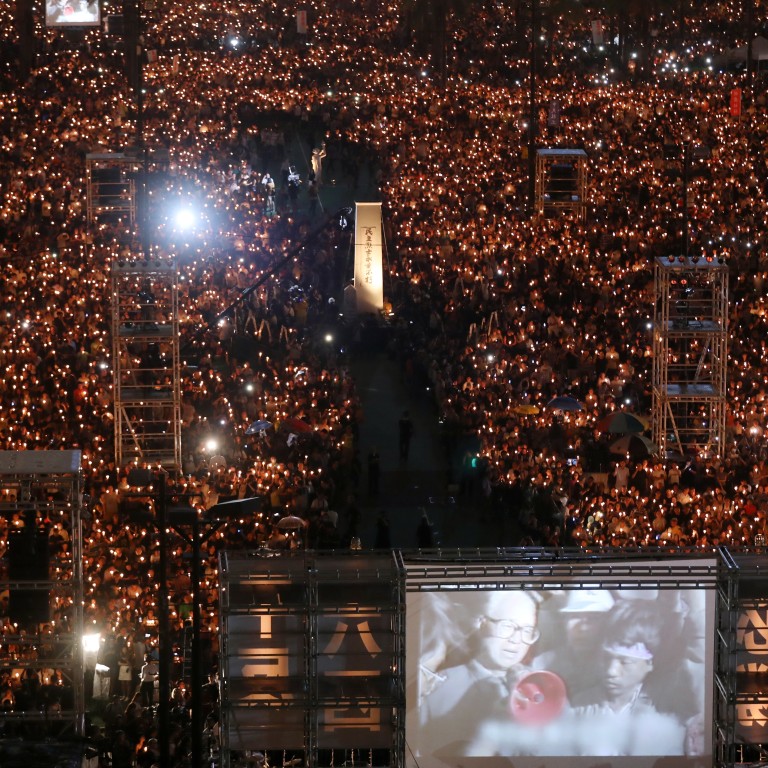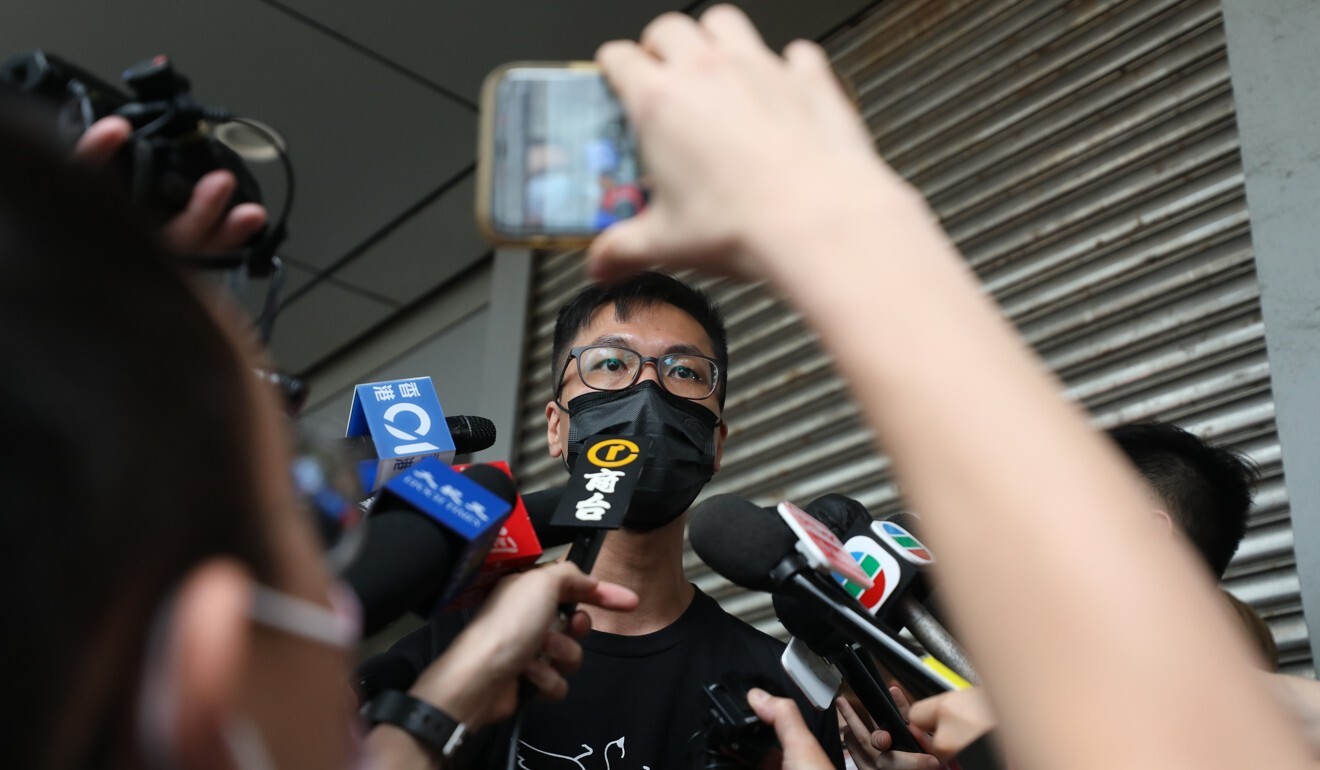
Coronavirus: Hong Kong Tiananmen vigil organisers accuse officials of using pandemic as excuse to ban June 4 event
- One member of the organiser’s leadership says the government is using the pandemic to ‘suppress’ protest and assembly rights
- But pro-establishment politician Regina Ip says police made the right call, and ‘acted in accordance with the law’
“The epidemic situation has already eased in Hong Kong. The government has relaxed rules on the number of participants allowed in its venues,” Leung Kam-wai, a member of the alliance’s leadership, told a Friday radio programme.
“The government has even allowed concerts to take place. It has cited the pandemic in banning our event, but this doesn’t seem to be the real reason. They used it to suppress residents’ assembly and protest rights.”
Police ban Hong Kong’s Tiananmen vigil for second straight year citing Covid-19
Since last month, performance venues, cinemas and the city’s two amusement parks have been allowed to open at 75 per cent capacity, up from 50 per cent previously.
The alliance reported that more than 180,000 people attended the last approved vigil in 2019, while police placed the number at 37,000.
The Hong Kong Coliseum in Hung Hom has a maximum capacity of 12,500, and the concert venue can hold events for 9,000 people under existing social-distancing rules.

The alliance is set to appeal against the force’s decision, with discussions on the response to be held on Saturday.
Leung said the group was still mulling contingency plans for the anniversary and would make an announcement in due course.
On June 4, 1989, the Chinese military ordered soldiers to open fire on student protesters and civilians who had gathered at Beijing’s Tiananmen Square to demand greater political freedom. Reports have suggested that hundreds were killed, possibly more.
An annual vigil has been held in Hong Kong’s Victoria Park every year since, the only large-scale public gathering on Chinese soil to remember the 1989 crackdown.
Marathon commemorating Tiananmen crackdown proceeds in diminished form
Macau’s government also decided to ban the city’s June 4 vigil for the second straight year, citing public health grounds and saying that banners displayed by the organisers challenged Beijing’s authority.
In contrast, Hong Kong police did not mention any national security concerns.
Regina Ip Lau Suk-yee, formerly the city’s security minister, on Friday said she supported the ban, stressing the need to keep the coronavirus crisis under control.
“[Police] acted in accordance with the law. You can’t have too many people out there on the streets,” she said.
She also insisted that it would be an act of subversion under the security law to call for an end to China’s “one-party rule”.
But executive councillor and fellow pro-establishment figure Ronny Tong Ka-wah disagreed. He pointed to language in Article 22 of the security law stipulating that a person only committed subversion if he or she used “force or threat of force or other unlawful means”.
As jail time looms, Hong Kong June 4 vigil organisers weigh uncertain future
“These elements may not be present in the alliance’s vigil. The police cannot assume that it would be breaching the law,” he argued.
However, Tong added, if the alliance lost its appeal, anyone still attempting to organise a mass vigil could be in breach of the legislation, as the act at that point would be unlawful. But, he continued, small groups marking the occasion with calls to end one-party rule might theoretically be fine, given that gathering groups of four or less was legal.
Eric Cheung Tat-ming, a principal law lecturer at the University of Hong Kong, said it remained uncertain as to whether marking June 4 could land individuals in breach of the security law.
“It’s difficult to assess the exact risks. There will be risks, but it would depend on a person’s actual situation,” Cheung said.
Additional reporting by Chan Ho-him

